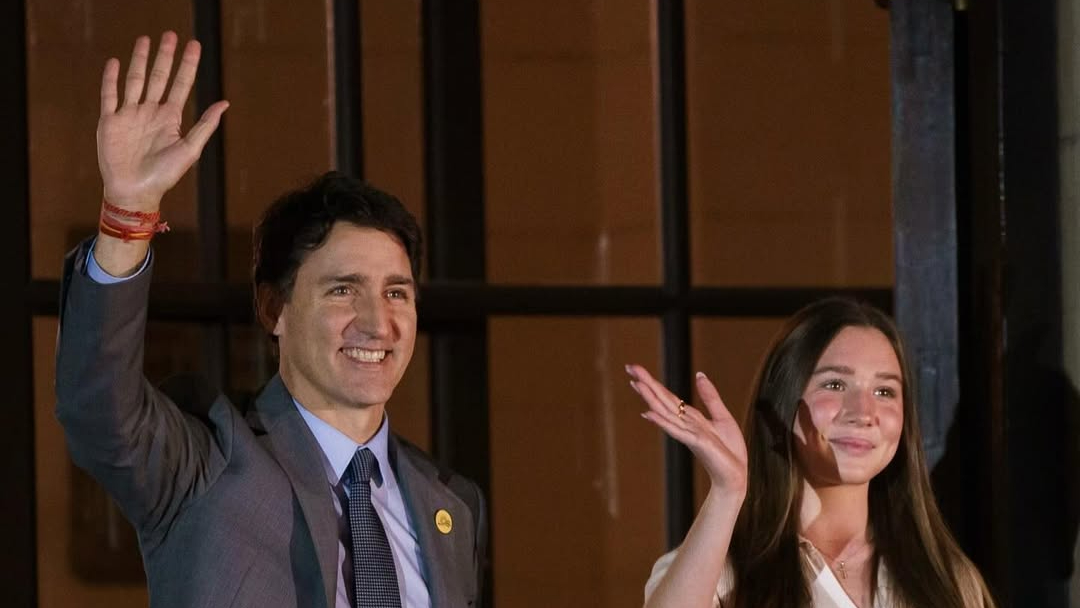Justin Trudeau Resigns: Canada Enters a Pivotal Political Era
Canadian Prime Minister Justin Trudeau has announced his resignation as leader of the Liberal Party, marking a seismic shift in the nation's political landscape. After nearly a decade at the helm, Trudeau’s decision reflects growing public dissatisfaction and mounting challenges that have plagued his government in recent years. He will remain as prime minister until the party selects a new leader, a process expected to conclude within the next two months.
This announcement sets the stage for an intense leadership contest as Canada prepares for a general election, mandated by October 2025. The Liberal Party’s new leader will face the daunting task of addressing a divided electorate and tackling critical economic and social issues that have come to define the nation’s current political discourse.
Trudeau’s Tenure: A Legacy of Highs and Lows
Trudeau’s initial years in office were characterized by widespread public support and bold reforms. Shortly after taking office in 2015, his government legalized recreational cannabis, introduced progressive tax policies, and emphasized gender equality, including a cabinet balanced equally between men and women.
His ambitious environmental policies, including the implementation of a national carbon tax, established Canada as a global leader in the fight against climate change. His leadership on international issues, such as accepting Syrian refugees and championing multilateralism, further bolstered his reputation.
However, as time wore on, Trudeau's government faced increasing criticism. The SNC-Lavalin scandal, accusations of ethical misconduct, and economic challenges began to erode public trust. The COVID-19 pandemic further strained his leadership, with decisions surrounding vaccine rollouts, border policies, and financial aid programs drawing mixed reactions.
Post-pandemic, Canada’s cost-of-living crisis and housing shortages have intensified, further lowering Trudeau's approval ratings. Today, his popularity stands at 22%, the lowest point of his tenure.
Key Reasons Behind Trudeau’s Resignation
- Declining Public Support: Trudeau's resignation comes amid a sharp decline in voter confidence. Recent polls indicate that a growing number of Canadians are seeking a change in leadership, driven by frustrations over economic stagnation and unresolved social issues.
- Internal Party Dynamics: The resignation of Chrystia Freeland, Trudeau’s former deputy and finance minister, highlighted cracks within the Liberal Party. Freeland’s departure, accompanied by pointed criticism of Trudeau’s leadership, added pressure on the prime minister to step aside.
- Political Trends: Trudeau’s decision aligns with a broader global trend of voters rejecting incumbents. From the U.S. to Europe, electoral shifts have demonstrated a preference for new leadership amid economic uncertainty and political polarization.
The Liberal Party’s Leadership Race
With Trudeau stepping down, the Liberal Party faces the urgent task of selecting a new leader. This contest will not only determine the party’s direction but also its ability to compete in the upcoming general election.
Key Contenders Include:
- Chrystia Freeland: A seasoned politician, Freeland has held roles such as foreign minister, trade representative, and finance minister. Her extensive experience and global reputation make her a strong candidate.
- Dominic LeBlanc: A long-time ally of Trudeau, LeBlanc manages multiple cabinet responsibilities and represents continuity within the party.
- Anita Anand: Known for her decisive leadership during the COVID-19 vaccine rollout as procurement minister, Anand is seen as a fresh and pragmatic option.
- Mark Carney: The former Bank of Canada governor brings economic expertise and an outsider’s perspective, appealing to voters seeking technocratic leadership.
The new leader, expected to be chosen by March 2025, will face an electorate increasingly concerned about housing, affordability, and economic stability.
Challenges Ahead for Canada’s Next Leader
The next prime minister will inherit a nation grappling with complex and urgent challenges:
- Cost-of-Living Crisis: Inflation has significantly increased the prices of everyday goods, straining household budgets. Canadians are demanding tangible solutions to improve affordability.
- Housing Shortages: Years of underinvestment, combined with rising immigration and population growth, have created an acute housing crisis. Addressing this issue will be critical to ensuring economic stability and public satisfaction.
- Immigration and Integration: While Canada’s welcoming immigration policies have been globally lauded, they have also strained infrastructure and services, sparking debates about sustainability.
- Environmental Goals: Balancing environmental commitments, such as carbon emissions reduction, with economic realities remains a polarizing issue. Policies like the carbon tax face increasing opposition from certain sectors and provinces.
- National Unity: Political divisions between provinces, particularly over energy policies and economic priorities, pose a threat to national cohesion. Bridging these divides will require deft leadership and negotiation.
Broader Political Implications
Trudeau’s departure has raised questions about the future of the Liberal Party and its ability to maintain power. Opposition parties, particularly the Conservatives and the New Democratic Party (NDP), are positioning themselves to capitalize on the Liberal Party’s leadership transition.
The Conservative Party, under leader Pierre Poilievre, has focused on economic issues, criticizing the Liberal government’s handling of inflation and housing. The NDP, led by Jagmeet Singh, has emphasized social welfare and affordability, aiming to attract progressive voters dissatisfied with Trudeau’s policies.
The upcoming general election will serve as a litmus test for Canadian voters, determining whether they are ready to embrace a new political direction or remain aligned with the Liberal Party’s progressive platform.
Related: Trump Targets Canada: A Warning Shot to Global Allies Amid Tariff Threats
Justin Trudeau’s resignation marks the end of a transformative yet contentious era in Canadian politics. As the Liberal Party prepares to elect a new leader, the stakes are high for the party and the nation.
Canada’s next leader must address pressing economic and social challenges while navigating an increasingly polarized political environment. With a general election on the horizon, the coming months will be crucial in shaping the nation’s future and defining its path forward.














